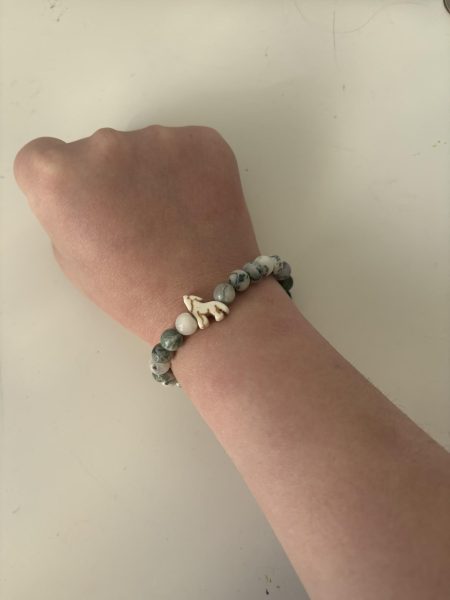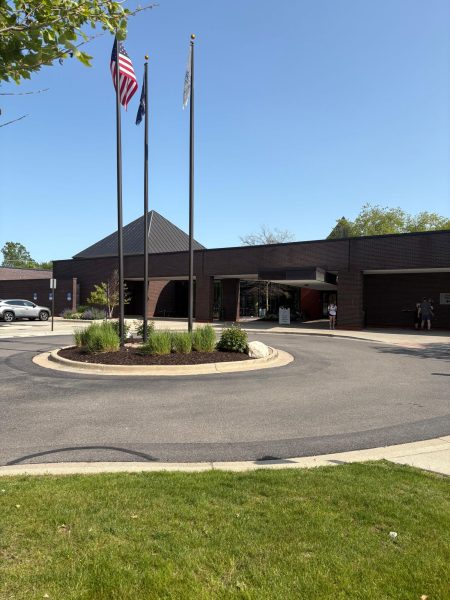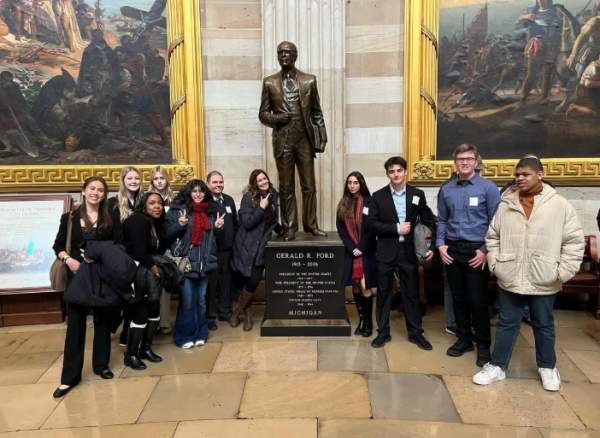P-CEP seniors contract senioritis
Krishna Patel, Plymouth Senior, on his phone while class is going on. May 12, 2022.
With the second semester approaching an end, it is safe to say many high school students want to finish the year strong. However, this may not be the case with all students.
Seniors have endured many essays, projects and other homework assignments, and have experienced just about everything high school has to offer. Many seniors tend to crash near the end of the school year. The crash may be evident by skipping class or not turning work in, whatever it may be, senioritis is most likely the culprit.
According to Merriam-Webster, senioritis is “an ebbing of motivation and effort by school seniors as evidenced by tardiness, absences, and lower grades.”
After speaking with some P-CEP seniors, it became clear that there are many with senioritis-like symptoms.
“I haven’t really worked as much this year, especially now that I’m nearly finished. I show up to school way less and have lots of tardies,” said Elias Madi, Salem senior.
This sentiment was not an isolated incident.
“I don’t turn in work on time like I used to [even though I should], but I just want to get [the school year] over with,” said Krishna Patel, Plymouth senior.
Senioritis affects everyone differently, with some seniors having no issues at all. For the seniors that do experience senioritis, however, there may be a variety of reasons as to why.
According to The Senior Year Enigma, a study done by William Carpluk, Ed.D. in educational leadership, seniors have a mindset that causes them to ask questions such as “When are we gonna stop doing stuff? Why are we still doing stuff? I got into college. I‘m not going into math in college. Why do I need to know this?”
Often, the thought of what comes next contributes to senioritis as well.
“[Senioritis is] the combination between summer break and being accepted or making the decision of where you’re going to be in the fall of next year,” said Mrs. Lehmann, Canton counselor.
For whatever reason a senior may experience senioritis, the effects aren’t permanent.
During her interview with the WBUR News Station, University of Notre Dame psychology professor Darcia Narvaez mentioned that people do usually snap out of it.
“I think we process those feelings, whatever they are,” said Narvaez. “We have a little more experience in the new job or the new event of our life that’s taking place.” In this case, the “new job or new event” is transitioning from high school to post-high school life.
Lehmann issued some advice to help deal with the effects of senioritis.
“Well, I think the moment you start to slip, talk to your teacher, go find your counselor, tell a friend to give you a kick, move back, get back in.”
Your donation will support the student journalists of Salem High School - MI. Your contribution will allow us to purchase equipment and cover our annual website hosting costs.
Shahab Alriyashi is a senior from Canton High School. After successfully completing his first three years, he is more than relieved to be in his final...











